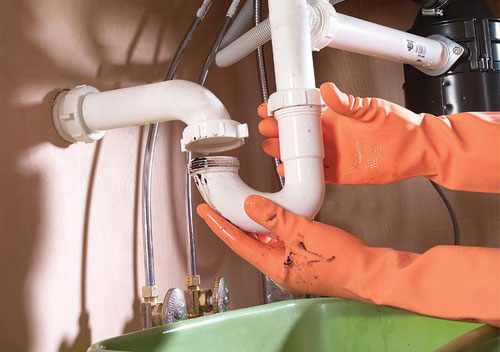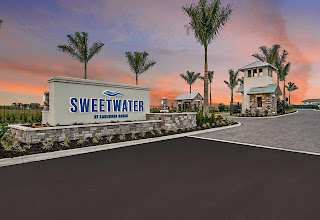How to Avoid Plumbing Clogs and Backups
Plumbing clogs can be caused by a variety of factors. Here are some of the most common causes of plumbing clogs:
1)Accumulation of debris: Over time, debris such as hair, soap, food waste, and other particles can build up in pipes and cause clogs.
2)Flushing non-degradable items: Flushing non-degradable items such as paper towels, feminine hygiene products, and baby wipes down the toilet can cause blockages in the pipes.
3)Pouring grease or oil down the drain: Grease and oil can solidify in pipes and cause blockages.
4)Tree root intrusion: Tree roots can grow into sewer lines and cause clogs.
5)Mineral buildup: Minerals such as calcium and magnesium can build up in pipes and cause blockages.
6)Broken or damaged pipes: Broken or damaged pipes can cause clogs by allowing debris to accumulate in the damaged area.
7)Poor installation: Poor installation of pipes, such as improper slope or inadequate ventilation, can cause clogs.
8)Foreign objects: Objects accidentally dropped into the toilet or sink, such as toys or jewelry, can cause blockages.
By being mindful of these common causes of plumbing clogs, you can take steps to prevent them and keep your plumbing system running smoothly.
Plumbing clogs and backups can be a frustrating and unpleasant experience to deal with. Here are some tips to help you avoid them:
1)Be mindful of what you flush down the toilet - only flush human waste and toilet paper. Avoid flushing feminine hygiene products, baby wipes, paper towels, or anything else that is not meant to be flushed.
2)Use drain strainers in sinks and showers to catch hair, soap, and other debris. Clean the strainer regularly.
3)Avoid pouring grease, fat, or oil down the drain. Instead, let it cool and dispose of it in the trash.
4)Regularly clean your drains by pouring hot water down them. This can help flush away any buildup of debris.
5)Do not overload your garbage disposal. Only put small amounts of food waste into the disposal at a time, and run cold water while using it.
6)Have your sewer lines inspected regularly by a professional plumber. This can help detect and prevent any potential problems before they become major issues.
With these simple tips, you can help prevent plumbing clogs and backups and keep your plumbing system in good working order.
Tips For Unclogging and Draining in the Bathroom
Unclogging and draining in the bathroom can be a common issue, but it can often be resolved with a few simple steps. Here are some tips for unclogging and draining in the bathroom:
1)Use a plunger: A plunger can be an effective tool for unclogging a sink or toilet. Place the plunger over the drain, creating a seal, and then use a pumping motion to create suction that dislodges the clog.
2)Pour boiling water: Boiling water can help dissolve clogs caused by soap, grease, or oil. Pour boiling water down the drain to break down the clog.
3)Use baking soda and vinegar: A mixture of baking soda and vinegar can help dissolve clogs and freshen drains. Pour 1/2 cup of baking soda down the drain, followed by 1/2 cup of vinegar. Wait a few minutes, then pour boiling water down the drain.
4)Use a drain snake: A drain snake can be used to dislodge clogs that are deeper in the pipes. Insert the snake into the drain and twist it to catch the clog.
5)Clean the drain trap: The drain trap, located underneath the sink, can often become clogged with hair and other debris. Remove the trap and clean it out, then reattach it.
6)Call a plumber: If you are unable to unclog the drain on your own, it may be time to call a plumber. A professional plumber can diagnose the issue and take the necessary steps to unclog the drain.
Pros and Cons of Chemical Drain Cleaners
Chemical drain cleaners are a common solution for clearing clogs in sinks, showers, and toilets. While they can be effective in certain situations, they also have their drawbacks. Here are some pros and cons of chemical drain cleaners:
Pros:
Convenience: Chemical drain cleaners are readily available at most hardware and home improvement stores and can be used quickly and easily to clear a clog.
Cost-effective: Chemical drain cleaners are generally inexpensive and can be a cost-effective solution for minor clogs.
Effectiveness: Chemical drain cleaners can be effective in dissolving clogs caused by hair, soap, and grease.
Cons:
Toxic chemicals: Most chemical drain cleaners contain toxic chemicals that can be harmful to humans, pets, and the environment. Inhaling the fumes or coming into contact with the chemicals can cause skin irritation, respiratory problems, and other health issues.
Damage to pipes: Chemical drain cleaners can damage pipes over time, especially if they are used frequently or in large quantities. This can lead to leaks or even pipe bursts.
Ineffectiveness for certain types of clogs: Chemical drain cleaners may not be effective for certain types of clogs, such as those caused by tree roots or other objects lodged in the pipes.
Risk of mixing with other chemicals: Chemical drain cleaners can be dangerous if they are mixed with other chemicals, such as bleach or ammonia. This can create toxic fumes or even an explosion.
Environmental concerns: Chemical drain cleaners can have a negative impact on the environment, especially if they are not disposed of properly.
Chemical drain cleaners can be a convenient and cost-effective solution for minor clogs. However, their potential health risks and damage to pipes make them a less-than-ideal choice for many homeowners. There are eco-friendly alternatives and professional plumbing services available that can address clogs without the use of harmful chemicals.
The Benefits of Regular Sewer Line Inspections and Maintenance
Regular sewer line inspections and maintenance are crucial for the health and safety of your home and its occupants. Here are some of the benefits of regular sewer line inspections and maintenance:
Early detection of problems: Regular inspections can help detect potential problems early on, before they become major issues. This can save you time, money, and hassle in the long run.
Improved drainage: Regular maintenance, such as cleaning and flushing the sewer lines, can help improve the overall drainage of your plumbing system. This can prevent backups and clogs and ensure that wastewater is properly carried away from your home.
Increased lifespan of your plumbing system: Regular inspections and maintenance can help extend the lifespan of your plumbing system by identifying and addressing issues before they cause major damage.
Health and safety: A damaged or clogged sewer line can pose a health hazard to you and your family by exposing you to harmful bacteria and pathogens. Regular inspections and maintenance can help ensure that your sewer line is functioning properly and does not pose a threat to your health and safety.
Compliance with local regulations: Some municipalities require regular sewer line inspections as part of their building codes or regulations. Regular inspections can help you stay compliant and avoid fines or penalties.
Peace of mind: Regular sewer line inspections and maintenance can provide you with peace of mind, knowing that your plumbing system is functioning properly and that you are taking steps to prevent major problems from occurring.
In summary, regular sewer line inspections and maintenance can help you avoid major plumbing issues, improve drainage, increase the lifespan of your plumbing system, ensure health and safety, comply with local regulations, and provide peace of mind. Consider scheduling a professional sewer line inspection and maintenance service for your home today.





Comments
Post a Comment